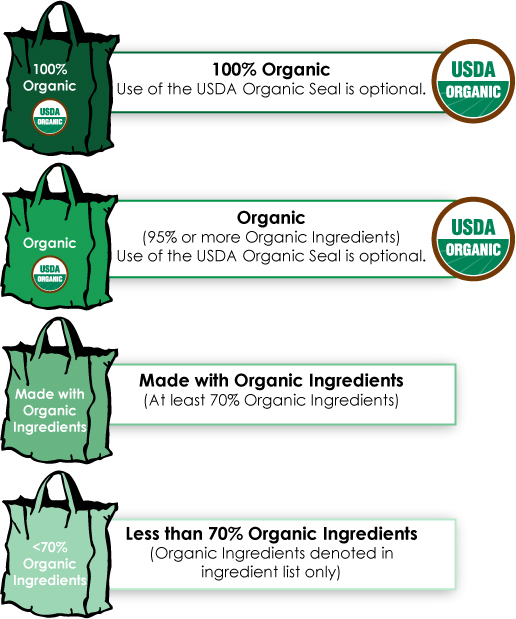Why Eat Organic?
Nutritional Values and Standards Regulated by the USDA
Copyright © Walter McDonald; All rights reserved; content may not be copied, rewritten, or republished without author’s written permission; Posted August 7, 2012

Eating organic is one of the best and most healthiest things a person do with their body these days. The troubling thing though, when it comes to eating and buying organic, is that organic food tends to cost much more money than non-organic food does.
The benefits of organic food are numerous, and the list is near endless when it comes to those benefits. With the food market as it is today, being that it is industrialized to meet an unsustainable demand, there are many dangers that come with food now.
Chemical Pesticides Create Monocultures
There are pesticides, hormones and all kinds of other things that create monocultures. A monoculture is when foods are all the same, and thus become more vulnerable to environmental changes, bugs and pests and diseases that cause foodborne illness.
This is why the world has seen increases in food borne epidemics, like the Spinach e-coli outbreak that happened in the United States in 2008.
Thus, it is important to buy organically-grown produce, not only for the health benefits, but also because of the benefits that would happen to the market.
The higher the demand is for organic food, the cheaper it will eventually become because the market will respond to the high demand with high increases in creation of the organic foods. Here are just a few of the main reason why you should eat organic:
It’s good for you; duh!
Science has proven that organic fruit is more nutritious and healthy for humans than non-organic food. This is because many of those nutrients and vitamins are lost through the industrial farming process. Since organic fruit does not go through that process, it retains all that good stuff. Organic foods also have proven to have higher levels of antioxidants, which reduce the risk of cancer and other major illnesses. It has also been proven that organic foods — especially organic fruits and vegetables — will boost the immune system much more than their non-organic counterparts.It’s good for farmers too!
The health benefits of organic food also work their way down to the farmers, since organic farmers do not have to constantly handle toxic chemicals and other things that come with tending to a non-organic farm. Also, small, well groomed organic farms can be just as profitable as big, gigantic factory farms, if done right. The more people buy organic, the more successful the organic farmers will be. Supply and demand, folks.It’s good for the animals and the environment!
Organic food is better for the environment and the animals because there are no chemicals being used on the environment or the animals, which is good for all.
USDA Organic Food Classifications
Not all this food is at the same level of “organicness”. As you can see on the chart at the top of this article, there are four main classifications. It goes without saying that it is preferable to purchase the higher levels whenever possible.
The government is serious about this. In fact, the USDA states, “People who sell or label a product ’organic’ when they know it does not meet USDA standards can be fined up to $11,000 for each violation.”
About the Author:
Walter is a freelance writer for many web sites, blog sites, print, and other online publications. His work can be read all over the internet, and his favorite topics are health and nutrition. He recommends that you ask your doctor to try Acuvue.
More Recipes and Food Articles
- Organic Apple Sauce Recipe
- Johnny Mazetti Recipe
- Should You Steer Clear of Genetically Modified Food?
- Understanding Nutrition Labels and Serving Size
References:
Website © 2012 Kelly Smith All rights reserved; content may not be copied, rewritten, or republished without author’s written permission; Webmaster’s Google profile

